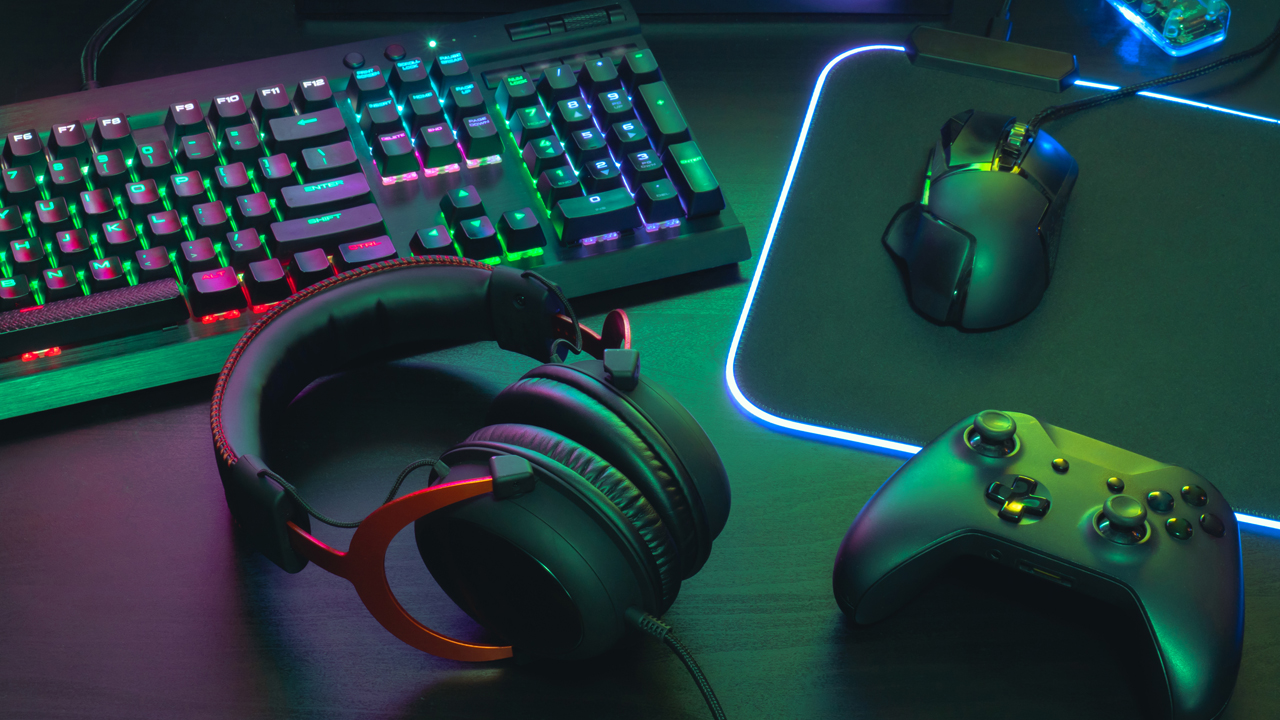Is using a VPN when gaming safe?
Check that you’re following the rules before you start gaming with a VPN

Here at Tom’s Guide our expert editors are committed to bringing you the best news, reviews and guides to help you stay informed and ahead of the curve!
You are now subscribed
Your newsletter sign-up was successful
Want to add more newsletters?

Daily (Mon-Sun)
Tom's Guide Daily
Sign up to get the latest updates on all of your favorite content! From cutting-edge tech news and the hottest streaming buzz to unbeatable deals on the best products and in-depth reviews, we’ve got you covered.

Weekly on Thursday
Tom's AI Guide
Be AI savvy with your weekly newsletter summing up all the biggest AI news you need to know. Plus, analysis from our AI editor and tips on how to use the latest AI tools!

Weekly on Friday
Tom's iGuide
Unlock the vast world of Apple news straight to your inbox. With coverage on everything from exciting product launches to essential software updates, this is your go-to source for the latest updates on all the best Apple content.

Weekly on Monday
Tom's Streaming Guide
Our weekly newsletter is expertly crafted to immerse you in the world of streaming. Stay updated on the latest releases and our top recommendations across your favorite streaming platforms.
Join the club
Get full access to premium articles, exclusive features and a growing list of member rewards.
The best VPN software offers features for gamers that can vastly improve your online experience, and by using a gaming VPN, you can enhance your online privacy and potentially even speed up your games.
When first researching VPNs for gaming, users often ask whether it’s safe and legal to use them. In this article, we discuss the pros and cons of using a VPN when gaming and whether using one is safe.
- Here's our walkthrough on how to spoof your location for Pokémon GO
What does a VPN do?
VPN stands for virtual private network. As its name suggests, it’s a technology used for making a virtual bridge between two remote networks. Once a VPN connection is established, computers on both networks can interact as if they were connected by a physical network cable.
Because a VPN is typically used over the open internet, all data sent over the VPN connection will usually be encrypted for security reasons. This means everything sent back and forth between the two networks appears encrypted to all the servers in between, significantly improving your privacy and anonymity.
VPNs were initially used in business applications, but many VPN providers have sprung up to serve the needs of home PC users. Secure VPN providers offer a long list of remote servers around the world that users can connect through.
Why use a VPN service when gaming?
While you’re connecting to the internet through one of these remote VPN servers, the data that you send is encrypted. Your internet service provider won’t know exactly what you’re doing on the internet, so if they throttle certain types of internet traffic or block websites, you’ll be able to circumvent this with a VPN.
Using a VPN when gaming hides your IP address from other players. This is of benefit to gamers who want to remain completely anonymous online. It also ensures that you can’t be the victim of a denial-of-service attack, which is when other players attempt to mess with your internet connection by sending you a large amount of network traffic.
You might also want to use a VPN to access games that aren’t available in your region. For example, connecting through a Japan VPN can give you access to games that are only available in Japan.
A VPN can sometimes help when there are major outages in internet infrastructure. Connecting through a VPN usually means your internet traffic will take a different route between your computer and the game servers. This can make your game more responsive if the usual route to the servers is experiencing technical issues or high levels of traffic.
- What is a VPN? Here, we explain all

Are VPNs for gaming safe?
Using a VPN when gaming can increase your online safety because your connection is made more private and anonymous. When gaming with a VPN, it’s much more difficult, if not impossible, for other players to know where you’re located.
Some people wonder whether using a VPN is safe from a legal standpoint. VPNs are entirely legal to use for legitimate purposes like gaming, unless you’re in one of the few countries that have banned or heavily restricted the use of VPNs. These countries include Russia, China, and the UAE.
Whether using a VPN breaks the terms and conditions of the game that you’re playing depends on the game. For most games, using a VPN is perfectly fine.
A few games disallow the use of VPNs because they can offer an advantage to players. For example, it would be possible to use a VPN to pretend to be multiple people at a single table of an online poker game, giving you an enormous advantage over other players. So, some games ban the use of VPNs, and you risk losing your account if you’re detected using one.
Bottom line
VPNs are safe to use for gaming, as long as you choose a reputable provider. Unless you’re in a country that explicitly forbids them, VPNs are also safe to use from a legal standpoint. Before you play online with one, though, check the FAQs of your online game to ensure that a VPN isn't disallowed.
Otherwise, VPNs can improve online safety when gaming by making your connection more private, secure, and anonymous.
What do we recommend?
As a VPN to use when gaming, no service comes close to ExpressVPN, free or paid. With over 3,000 servers in nearly 100 countries, all the security features necessary, blazing connection speeds, and reliable access to multiple streaming services, ExpressVPN is an excellent choice for those after security with no compromises.
While some users may prefer certain features of other top VPNs, it’s the best overall option for most users – and now Tom’s Guide readers can claim three months absolutely free. Check out our full ExpressVPN review for more info.
Get instant access to breaking news, the hottest reviews, great deals and helpful tips.

Richard is a technology writer with over 20 years experience in website development, marketing, and SEO. A graduate in Computer Science, he has lectured in Java programming and built software for companies including Samsung and Walmart. Richard writes for TechRadar, IT Pro, Tom's Guide, and PC Gamer.
 Club Benefits
Club Benefits






